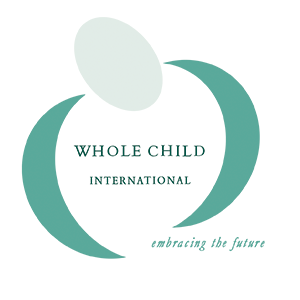INTERNATIONAL WOMEN’S DAY: WE NEED TO INVEST IN OUR CAREGIVERS
On International Women’s Day (March 8) we highlight the urgent need for the millions of caregivers around the world to receive the recognition, support and pay they deserve.
Women are carrying the weight of the work when it comes to childcare, both in paid and unpaid roles. Even before the increased pressures from the Covid-19 pandemic, women were already doing three times as many hours on unpaid domestic tasks and care than men, and this has now greatly increased as a result of millions staying at home in lockdown.[i]
This inequality is then seen in paid childcare roles, where the work is often seen as an extension of women’s gendered caregiving roles supporting primary male breadwinners and not given the pay or value it should have.[ii] In the UK and Australia, the average wages of full time childcare workers amount to only 45 percent of the national average earnings and that same figure for the United States is 56 per cent. [iii]
Yet investing in quality childcare is a triple win – it creates employment in the paid care sector, it enables mothers to work by providing childcare options, and it improves health and education outcomes for children. All three outcomes have huge benefits for the whole of society, including massive economic growth.
At Whole Child International, we are currently working in El Salvador supporting caregivers, who are predominantly women, in improving and professionalizing childcare services as just one step towards childcare becoming truly valued. Our training is done specifically with the caregivers in mind – tailored to a range of different educational backgrounds and offering practical and hands-on solutions.
But it’s not enough to train the caregivers, we need the whole childcare and child protection system to be invested in supporting those doing the frontline work. Our university program supports all those involved in the whole childcare and child protection system, including government departments, judges, ministers and lawyers as well as childcare setting directors and technical staff, not only sensitizing them about the incredible investment high-quality care is but also how important it is to adequately support those providing the care.
By both professionalizing the caregiver industry, as well as increasing the knowledge and appreciation for caregiving at a policy level, Whole Child hopes that the thousands of women working as caregivers will gain better opportunities and the pay, recognition and support they deserve. On International Women’s Day, we hope this ambition can be realized globally.
[i] Whose time to care? Unpaid care and domestic work during Covid-19 UN Women 2020
[ii] Child Care from the perspective of women in the informal economy, UN Secretary General’s high-level panel on women’s economic empowerment, 2016 quoting Elson, D. 2000. Progress of the World’s Women 2000. New York: UNIFEM and Razavi, Shahra. 2011. “Introduction: Rethinking Care in a Development Context.” in ed. Razavi, S. Development and Change, Vol. 42, No. 4
[iii] International Trade Union Confederation. 2016a. “Investing in the Care Economy: A Pathway to Growth.” Brussels: ITUC.

